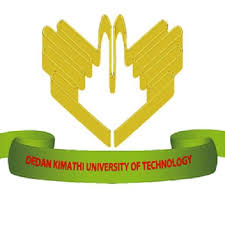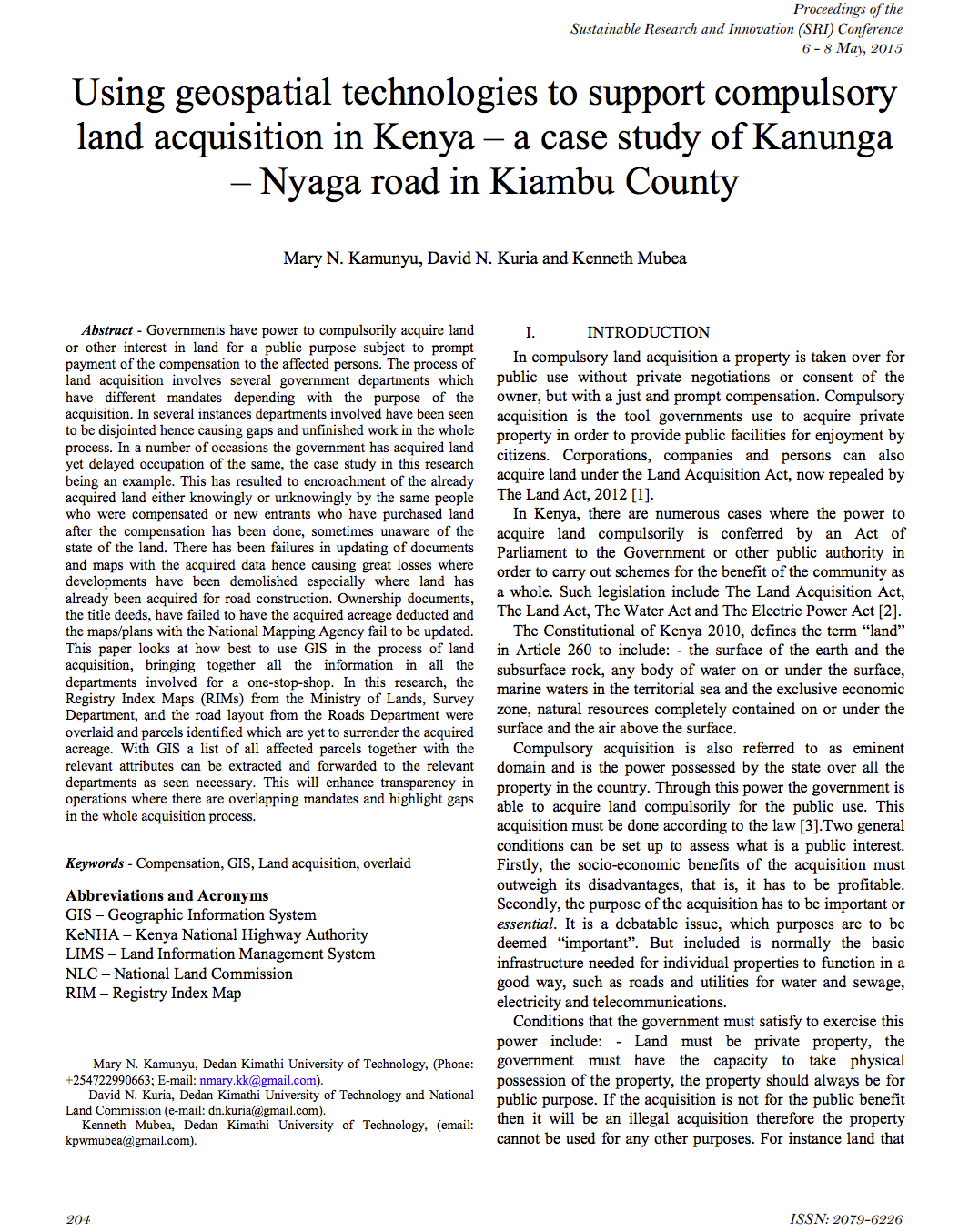Location
MOTTO
The Dedan Kimathi University of Technology motto is: “Better Life through Technology”.
VISION STATEMENT
To be a Premier Technological University Excelling in Quality Education, Research, and Technology Transfer for National Development.
MISSION STATEMENT
To provide academically stimulating, culturally diverse and quality learning environment that fosters research, innovation and technology development towards producing relevant technical and managerial human resource and leaders to contribute to attainment of national development goals.
PHILOSOPHY
Dedan Kimathi University of Technology is founded on the belief that self-actualization, and solutions to global challenges are attainable through a spirit of dedication, self –confidence, determination, and best utilization of resources. The institution also believes in being globally competitive through the employment of global competencies. To actualize its beliefs and goals, the University is committed to investing in her staff, facilities and systems to ensure an internationally excellent environment for education and for the furtherance of her aims and objectives. The ultimate goal of this philosophy is to mould Dedan Kimathi University of Technology into an institution known for world class research, academic excellence, an exceptional staff and students, and one that harbors the highest level of innovation, creativity, scholarship and enterprises.
CORE VALUES
- Innovation
- Scholarship
- Diversity
- Integrity
- Teamwork
Members:
Resources
Displaying 1 - 4 of 4Using parallel random forest classifier in predicting land suitability for crop production
In this paper, we present an optimized Machine Learning (ML) algorithm for predicting land suitability for crop (sorghum) production, given soil properties information. We set-up experiments using Parallel Random Forest (PRF), Linear Regression (LR), Linear Discriminant Analysis (LDA), KNN, Gaussian Naïve Bayesian (GNB) and Support Vector Machine (SVM). Experiments were evaluated using 10 cross fold validation. We observed that, parallel random forest had a better accuracy of 0.96 and time of execution of 1.7 sec. Agriculture is the main stream of food security.
Remote Sensing-based Evaluation of Trends and Impacts of Land Surface Property Changes in the Mara Ecosystem in Kenya
The Earth’s land surface is a key component of its climate system. Terrestrial plants, animals and human beings rely on the land surface for sustenance and existence; as such, its prevailing conditions and properties are essential to terrestrial life. Because land cover is a major component of the land surface, its alteration constitutes a form of land surface change.
ASSESSMENT OF LAND USE LAND COVER CHANGE AND DECLINE IN SUGARCANE FARMING USING GIS AND REMOTE SENSING - A CASE STUDY OF MUMIAS DISTRICT, KENYA
Land use/cover changes are pervasive with no clear understanding of their spatial extends, drivers and impacts to society. Land-use changes have become a key component in the current strategies for managing and monitoring the natural resources and environment changes. The purpose of this study was to assess the land covers change and decline in sugarcane farming using a three time series of Landsat satellite images of 1984, 2000 and 2015.
Using geospatial technologies to support compulsory land acquisition in Kenya
Governments have power to compulsorily acquire land or other interest in land for a public purpose subject to prompt payment of the compensation to the affected persons. The process of land acquisition involves several government departments which have different mandates depending with the purpose of the acquisition. In several instances departments involved have been seen to be disjointed hence causing gaps and unfinished work in the whole process.





